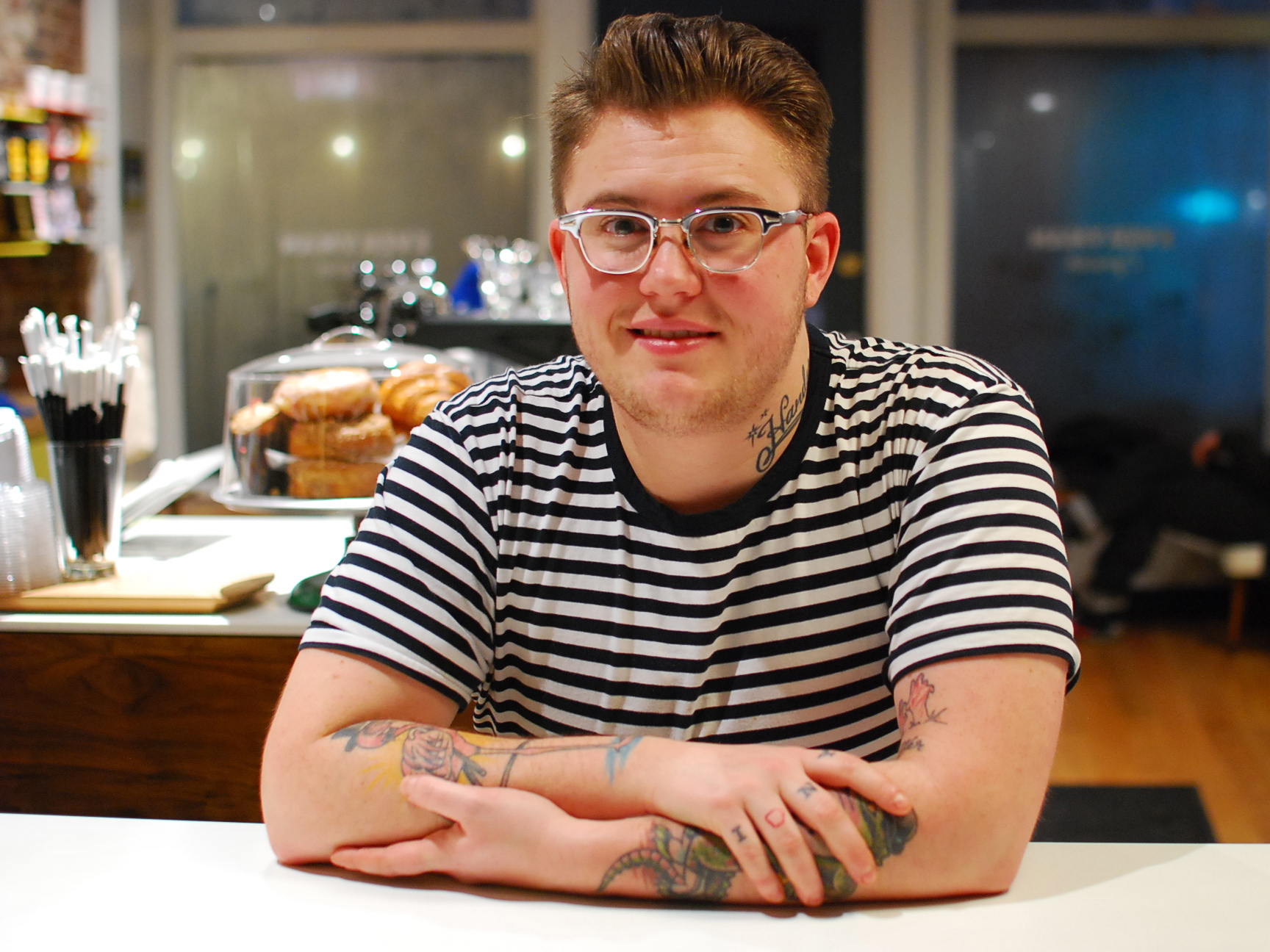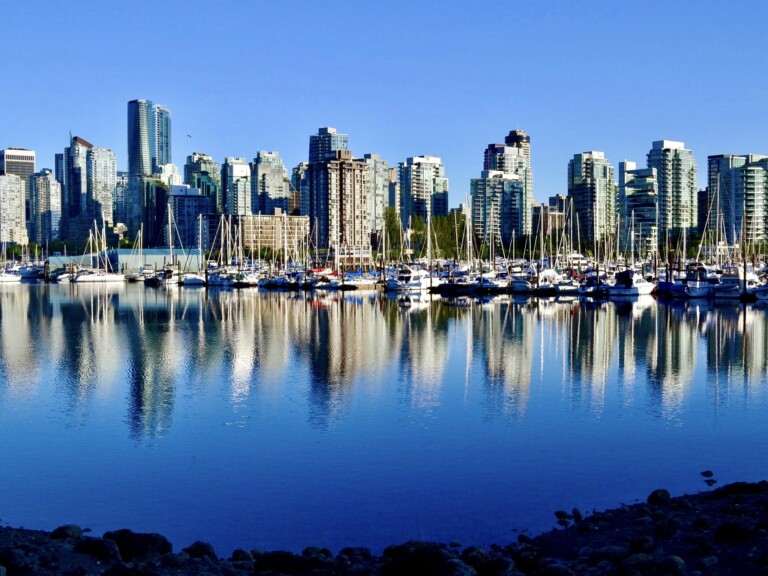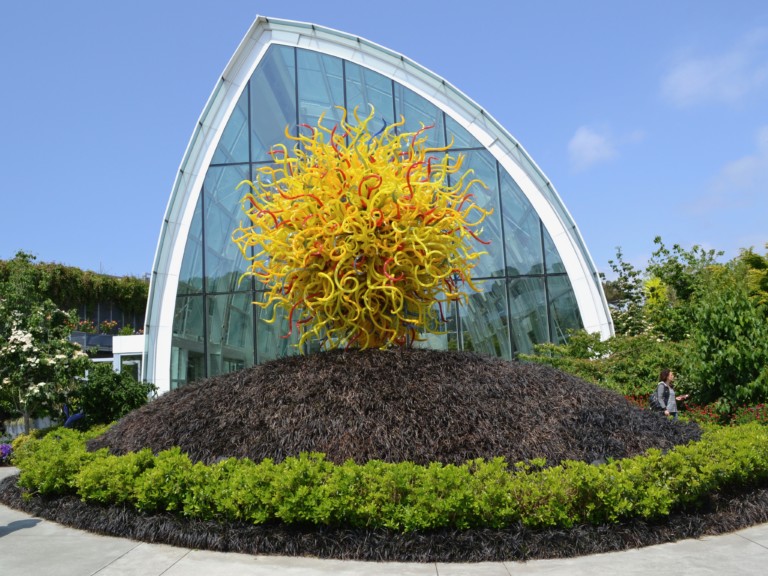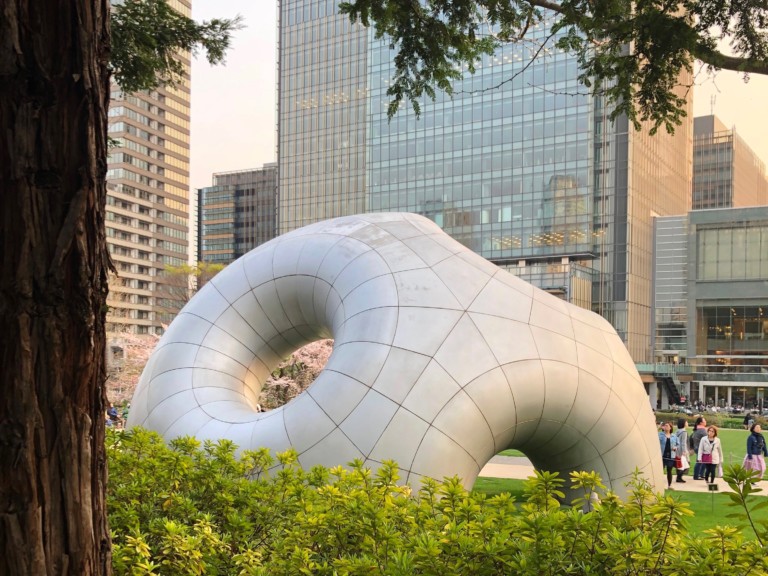Sam Penix grew up in the spring training hub of Sarasota, Florida, moved to New York and fell for specialty coffee at Gimme! He joined Everyman Espresso, became the owner and now operates two cafes in Manhattan. On January 16, we met at Everyman Espresso in SoHo, and Penix shared caffeinated insights.
I visited your original location in May, and in the meantime, you opened a second location. What was the approach with version 2.0? What were you able to do here that you weren’t able to do at the original?
We wanted to offer multiple brew methods, as far as filtered coffee, and also be able to offer a couple different coffee options. Our focus was more on the idea that we could serve different coffees, versus brew methods, because we kind of think it’s more interesting to be able to offer two coffees that taste very different from each other. Sometimes, filter options start to blend together a bit…The other thing that we wanted to do is drop down the countertops, especially on the espresso machine bar, so we can have a lot more interaction between the customers and ourselves, and break down the counter and the barrier that it creates. All of that is kind of in an effort to make us look a little less your typical coffee shop, a little less like a Starbucks or a Dunkin Donuts. A lot of specialty shops – even though they’re doing great coffee – have maintained that same service model of pay at the register, pick up over here, high counters – and a lot of barriers, so you can’t really see what’s going on. I think it was just like, “Well, that’s the way coffee shops have been built, so we should probably stick to 36-inches for our counters,” so we just decided we wanted to do something different.
Josh Lurie: How much more can you take on?
Sam Penix: I don’t know. We’ll see as we go.
JL: What does a coffee have to be for you to serve it at Everyman Espresso?
SP: First of all, it has to be Counter Culture, because we use all Counter Culture, but what we’re looking to see with them, besides just our relationship with them, professionally, being really good, I just think they have some of the best coffees I’ve ever had, and enough variety to keep us interested, and to be able to serve two or three different coffees that are literally outstanding, to keep the menu fresh. So far, so good. We have two different coffees we can pull for you as espresso. We generally stick to Toscano for our milk drinks, but we like to have a secondary coffee option on espresso if somebody’s looking for just a straight shot, cause often times, those are a little more interesting, and do better on their own, versus just cappuccino.
JL: What’s the very first cup of coffee you remember drinking?
SP: The very first coffee I remember drinking is probably good old diner coffee. My mom was a waitress for about four years, and I grew up in a restaurant, working there every day after school.
JL: What’s one great piece of advice somebody in the coffee industry gave you that’s stuck with you over the years?
SP: Not specifically a person. When I think about what I’ve gotten from specialty coffee, I think about a community of people. I think the thing that’s most inspiring thing about coffee and the community is that we’re very headstrong as far as our want and our search for quality. It just kind of never stops. Every time I think I get to a point where I’ve plateau-ed or am not that into it, I get sideswiped by a whole new set of ideas from various people in the community.
JL: At what point did you know you would work with coffee for a living, and what were you doing leading up to coffee?
SP: Leading up to coffee, when I was in high school and college, I went to a military school. So I guess something I take from that is the leadership roles that I’ve had in the past, that help with this job. After I moved to New York, mostly I was looking for a job to support myself, like anybody. I had a really great experience as a customer with coffee and I thought, “Wow, I would give anything to work at a place like that.” It’s so much more rewarding than just going to work and trying to do a good job.
JL: What was the place?
SP: Gimme! Coffee in Brooklyn. I had some experience with serving Counter Culture before that, so I think I really wanted to get back into that side of coffee. I could recognize there was a very clear divide between average coffee and specialty coffee. If I was going to work my tail off, I wanted it to be for something special, to give people something special, and to serve something special. After I got a job at Gimme! Coffee, I was kind of hooked. After that, I had a series of different jobs, and I finally moved on to working for Everyman Espresso, and was given the chance of taking over and becoming an owner. That was about four years ago at this point. It was probably after I competed in the Barista competition, representing Everyman, that I realized this was gaining momentum for me, and this was something I would be doing for quite awhile. Obviously, when I earned ownership, I realized it was much more of a commitment. It just kind of rolled together and I gained a lot of momentum.
JL: What brought you to New York?
SP: I just wanted out of Florida, and I saw this place as a fast-paced, challenging, exciting place to live. I had a friend or two that lived here. That was it. Luckily it stuck. I was able to hang in there. I didn’t have a lot of resources or anything. I probably had about $500.
JL: How much more room is there in the New York coffee scene for specialty growth?









Leave a Comment